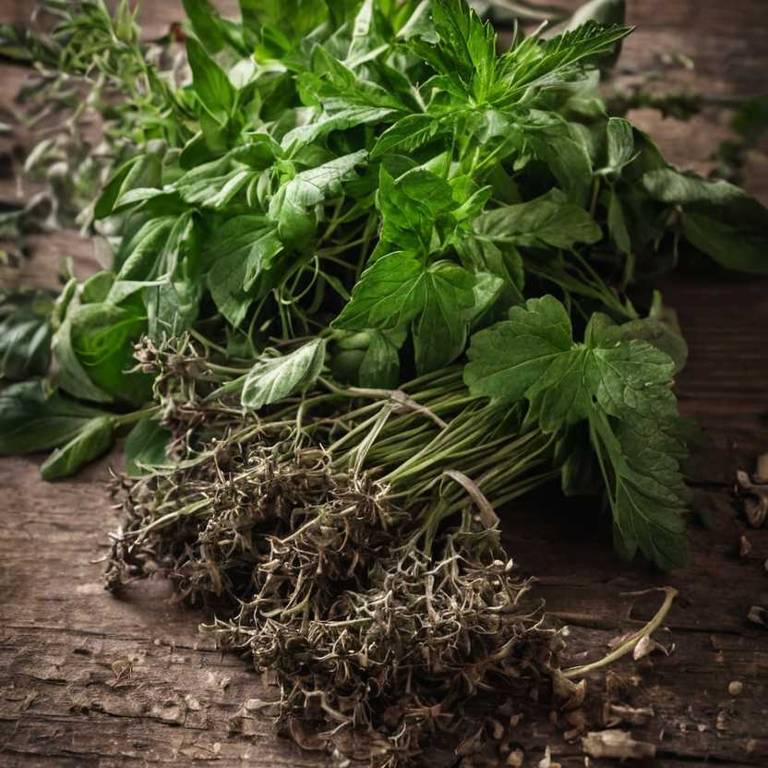By Leen Randell
Updated: Jul 08, 2024
What Are The Medicinal Properties Of Mandragora Officinarum (Mandrake)?

Mandragora officinarum, also known as mandrake, has health benefits such as reducing inflammation, improving sleep quality, and alleviating pain.
Its medicinal constituents include alkaloids, glycosides, and resins, which possess analgesic, sedative, and antispasmodic properties. Mandrake is typically prepared as a tincture or decoction for oral consumption, or used topically in the form of ointments or salves. Potential side effects include drowsiness, dry mouth, and stomach upset.
Precautions include avoiding use in large doses or for extended periods, as well as consulting a healthcare professional for guidance.
This article explains the health benefits, active constituents, medicinal preparations, possible side effects, and precautions related to Mandragora officinarum .
- What are the health benefits of Mandragora officinarum ?
- What are the active constituents of Mandragora officinarum ?
- What are the medicinal preparations of Mandragora officinarum ?
- What are the possible side effect of using Mandragora officinarum improperly?
- What precautions to take when using Mandragora officinarum medicinally?
What are the health benefits of Mandragora officinarum ?
Mandragora officinarum, also known as mandrake, has health benefits such as reducing inflammation and pain relief.
The plant contains alkaloids like mandragorine, which has been shown to have antiseptic and antibacterial properties. In traditional medicine, mandrake is used to treat various conditions, including fever, cough, and digestive issues.
Its analgesic and sedative properties also make it a natural remedy for anxiety and insomnia.
Here's a detailed article about the 10 health benefits of Mandragora officinarum .
What are the active constituents of Mandragora officinarum ?
Mandragora officinarum, also known as mandrake, has active constituents such as alkaloids, including scopolamine and hyoscyamine, which possess sedative and anticholinergic properties.
The plant's root is particularly rich in tropane alkaloids, which are responsible for its medicinal effects.
These constituents contribute to the plant's therapeutic applications, including treating insomnia, anxiety, and epilepsy, as well as its traditional use in pain relief and as a muscle relaxant.
Here's a detailed article about the 10 active constituents of Mandragora officinarum .
What are the medicinal preparations of Mandragora officinarum ?
Mandragora officinarum, also known as mandrake, has medicinal preparations such as decoctions, infusions, and ointments that are used to treat various ailments.
The roots are typically dried and powdered to create a medication that can be administered internally to relieve symptoms of insomnia, anxiety, and rheumatism.
Externally, it is applied as a poultice to alleviate pain and inflammation.
Here's a detailed article about the 10 medicinal preparations of Mandragora officinarum .
What are the possible side effect of using Mandragora officinarum improperly?
Improper use of Mandragora officinarum, also known as mandrake, increases the chances of experiencing side effects such as dizziness, nausea, and vomiting.
It can also cause rapid heartbeat, tremors, and hallucinations. In severe cases, excessive consumption can lead to respiratory failure and even death. Additionally, long-term use can lead to liver damage, kidney problems, and increased sensitivity to sunlight.
The root's toxicity can be fatal, especially in high doses.
Here's a detailed article about the 10 most common side effects of Mandragora officinarum .
What precautions to take when using Mandragora officinarum medicinally?
Before using Mandragora officinarum, also known as mandrake, for medicinal purposes, you must take precautions such as consulting with a qualified healthcare professional or herbalist.
The root and berries of the plant contain alkaloids that can be toxic in large doses, causing symptoms like hallucinations, confusion, and even death.
Prolonged use or excessive consumption can lead to dependence and addiction, underscoring the need for careful dosing and monitoring by a medical expert.
Here's a detailed article about 10 precautions to take when using Mandragora officinarum .